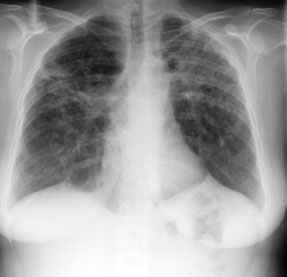New drugs for diabetes, secondary prevention of CV events
This update covers approval of a new drug to treat type 2 diabetes mellitus, along with diet and exercise, and of a drug to reduce risk of heart attack, stroke, cardiovascular death, and need for revascularization in patients with a previous heart attack or peripheral artery disease.
Recalls, warnings and label changes
A safety communication and new warning on epidural corticosteroid injections, warning that they may cause rare but serious adverse events, including loss of vision, stroke, paralysis, and death. The effectiveness and safety of epidural administration of corticosteroids have not been established, and they are not approved for this use, the FDA said.

A safety communication discouraging the use of laparoscopic power morcellation during hysterectomy or myomectomy for uterine fibroids, due to risk that the procedure will spread the cancerous tissue within the abdomen and pelvis. It is estimated that 1 in 350 women undergoing hysterectomy or myomectomy for the treatment of fibroids is found to have an unsuspected uterine sarcoma, the FDA noted. Physicians and patients should carefully consider available alternative treatment options for symptomatic uterine fibroids and not use power morcellation in women with suspected or known uterine cancer.
A recall of GenStrip blood glucose test strips by Shasta Technologies because they may report incorrect blood glucose levels. A recent inspection found extensive violations of federal regulations intended to assure the quality of products.
A recall of INRatio2 PT/INR professional test strips by Alere due to complaints of patients who had a therapeutic or near therapeutic INR with the test strip but a significantly higher INR (outside of therapeutic range) when performed by a central laboratory. There have been 9 serious adverse event reports, 3 in which bleeding was associated with patient deaths.
A recall of 7 lots of propofol injectable emulsion, USP, by Hospira, due to a glass defect located on the interior neck of the vial, which was identified during an inspection where the glass vial contained visible embedded metal particulate. Free-floating metal particulates were also found.
A recall of 1 lot of daptomycin for injection (Cubucin), 500 mg, by Cubist Pharmaceuticals due to the presence of particulate matter, identified as glass particles.
A recall of 1 lot of 1% lidocaine HCI injection, USP, 10 mg/mL, 30-mL single dose, preservative-free by Hospira, due to a confirmed customer report of orange and black particulate (identified as iron oxide) within the solution and embedded within the glass vial.
A recall of 1 lot of 0.25% bupivacaine HCI injection (Marcaine), USP, 10-mL, single-dose, preservative-free by Hospira, due to a confirmed customer report of discolored solution with visible particles embedded in the glass as well as discolored solution.
A recall of Sigma Spectrum infusion pumps by Baxter, due to reports of System Error 322 “Link Switch Error (low)” incidents in which the device has malfunctioned, leading to 9 severe adverse events. The pump improperly detects that the door is open when it is physically closed and stops the infusion, which can lead to an interruption or delay in therapy.
A recall of Acclaim and Acclaim Encore infusion pumps, by Abbott and Hospira, respectively, due to customer reports of broken door assemblies. If the door assembly breaks, it may prevent the door from closing properly and an over-infusion or a delay of therapy may occur.
A recall of GemStar docking stations by Hospira, used in conjunction with the GemStar infusion pumps, because the potential exists for the GemStar Phase 3 pump to fail to power up while connected to the docking station, which could delay or interrupt therapy. Clinicians should weigh the risk versus benefit to patients of using the device and consider an alternative pump.
A recall of the Heartware ventricular assist system due to reports that the driveline connector locking mechanism failed to engage as a result of a faulty manufacturing assembly process. This failure could result in the pump stopping and potentially lead to serious adverse health consequences. At implant and at each routine clinic visit, the patient's driveline connector should be inspected for proper locking and to ensure that the connector assembly remains secure.
A recall of the Arkon anesthesia delivery system due to a software defect that may cause the system to stop working and require manual ventilation of patients. The error is triggered by the combination of a spirometry loop save and a change in waveform configuration. In addition, if a cell phone or other device is plugged into one of the four USB ports for charging, the system may stop working.
A recall of certain lots of Covidien's Pipeline embolization device and Alligator retrieval device because the polytetrafluoroethylene coating applied to the delivery wire could delaminate and detach from the devices.
Approvals
Albiglutide (Tanzeum) to treat type 2 diabetes in adults, along with diet and exercise. Safety and effectiveness of this a glucagon-like peptide-1 (GLP-1) receptor agonist, given as a subcutaneous injection, were evaluated in more than 2,000 patients. It improved HbA1c levels and has been studied as a stand-alone therapy and in combination with other drugs, including metformin, glimepiride, pioglitazone, and insulin but should not be used to treat type 1 diabetes or diabetic ketoacidosis, or as a first-line therapy. It carries a boxed warning that thyroid C-cell tumors have been observed in rodent studies with some GLP-1 receptor agonists but that it is unknown whether the drug causes such tumors, including medullary thyroid carcinoma (MTC), in humans. It should not be used in patients with a personal or family history of MTC or in patients with multiple endocrine neoplasia syndrome type 2. The FDA is requiring postmarketing studies related to pediatric use, risks of MTC, and cardiovascular outcomes. The most common side effects are diarrhea, nausea, and injection-site reactions.
Ragwitek, the first approved allergen extract administered sublingually to treat short ragweed-pollen-induced allergic rhinitis, with or without conjunctivitis. It is a tablet that is taken once daily, starting 12 weeks before ragweed pollen season and continued throughout. The first dose is taken in the office with the patient observed for at least 30 minutes. Safety was assessed in about 1,700 adults with the most common adverse reactions being itching in the mouth and ears and throat irritation. In an effectiveness substudy of 760 patients, there was a 26% reduction in symptoms and the need for medications compared to placebo. The drug carries a boxed warning on the risk of severe allergic reactions.
An expanded indication for the cobas HPV DNA test as a primary screening test for cervical cancer. The test specifically identifies HPV 16 and 18 and 12 other types of high-risk HPV. Women who test positive for HPV 16 or 18 should have a colposcopy, while women testing positive for the other types should have a Pap test. The test was first approved in 2011 for use in conjunction with or as a follow-up to a Pap test. The safety and effective of the test as a primary screening test are based a study of more than 40,000 women comparing it to Pap testing.
Vorapaxar (Zontivity) to reduce the risk of heart attack, stroke, cardiovascular death, and need for revascularization in patients with a previous heart attack or peripheral artery disease. This antiplatelet agent is the first in a new class: protease-activated receptor-1 (PAR-1) antagonists. It carries a boxed warning about the risk of bleeding. It is contraindicated in patients who have had a stroke, transient ischemic attack, or bleeding in the head. In a clinical trial, adding vorapaxar to other antiplatelet agents (generally aspirin and clopidogrel) reduced the rate of a combined endpoint of heart attack, stroke, cardiovascular death, and coronary revascularization when compared to placebo.
Expanded indication for 2 cardiac resynchronization pacemakers and 8 cardiac resynchronization defibrillators by Medtronic to treat patients with atrioventricular (AV) block and less severe heart failure. The FDA previously approved these devices for patients with more severe heart failure meeting specific criteria. With the new indication, patients can receive a device that will pace both sides of their heart. Expanded approval was based on a study that found the devices resulted in a 27% reduction in death and heart-failure-related urgent-care visits compared to right ventricular pacing alone.
Ceritinib (Zykadia) to treat metastatic anaplastic lymphoma kinase (ALK)-positive non-small-cell lung cancer in patients previously treated with crizotinib, the only other approved ALK tyrosine kinase inhibitor. The drug was approved as a breakthrough therapy. Safety and effectiveness are based on a trial of 163 participants, about half of whom had their tumors shrink, with the effect lasting an average of 7 months. Side effects include gastrointestinal symptoms and increased liver enzymes, pancreatic enzymes, and glucose levels.



